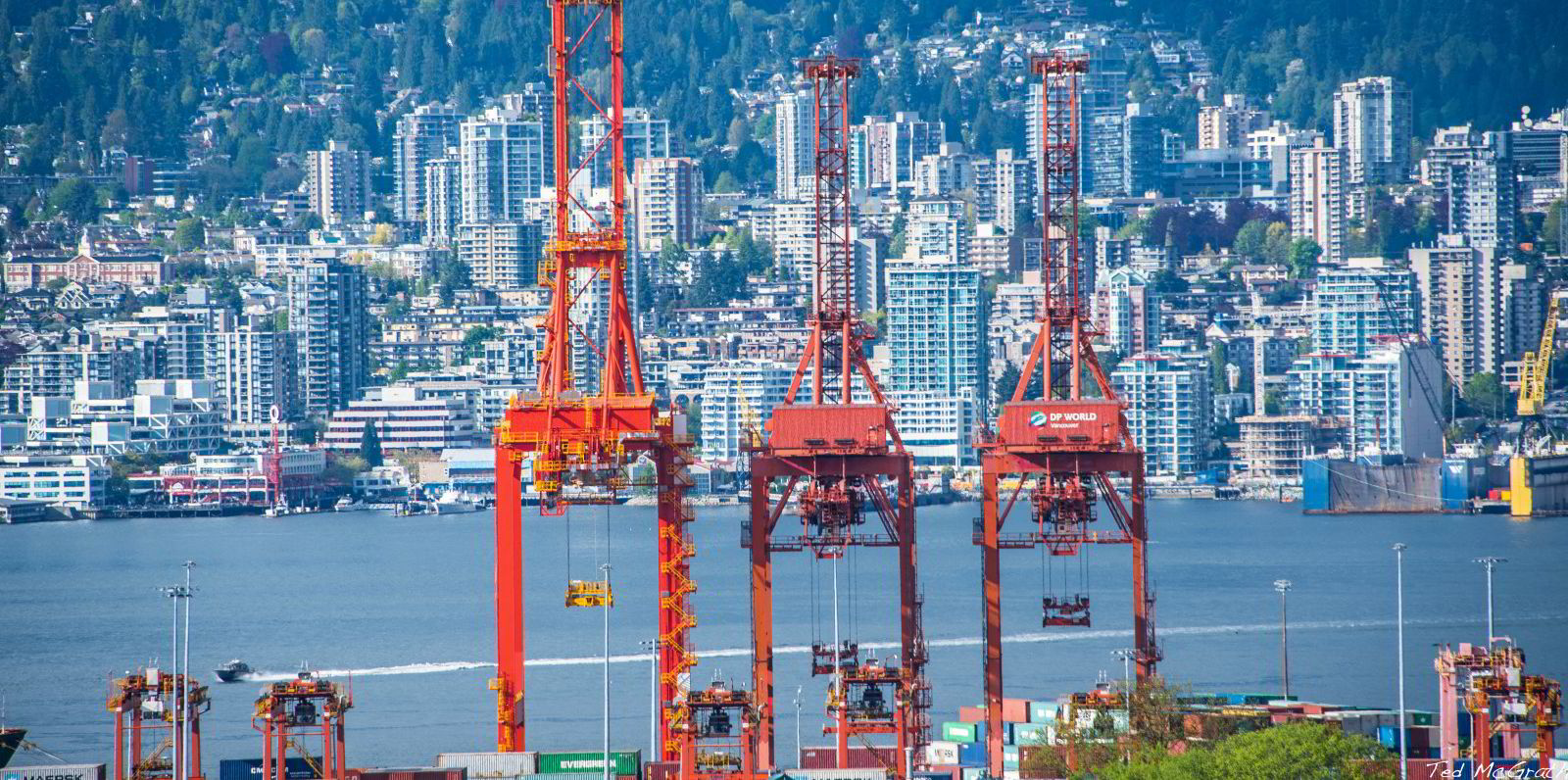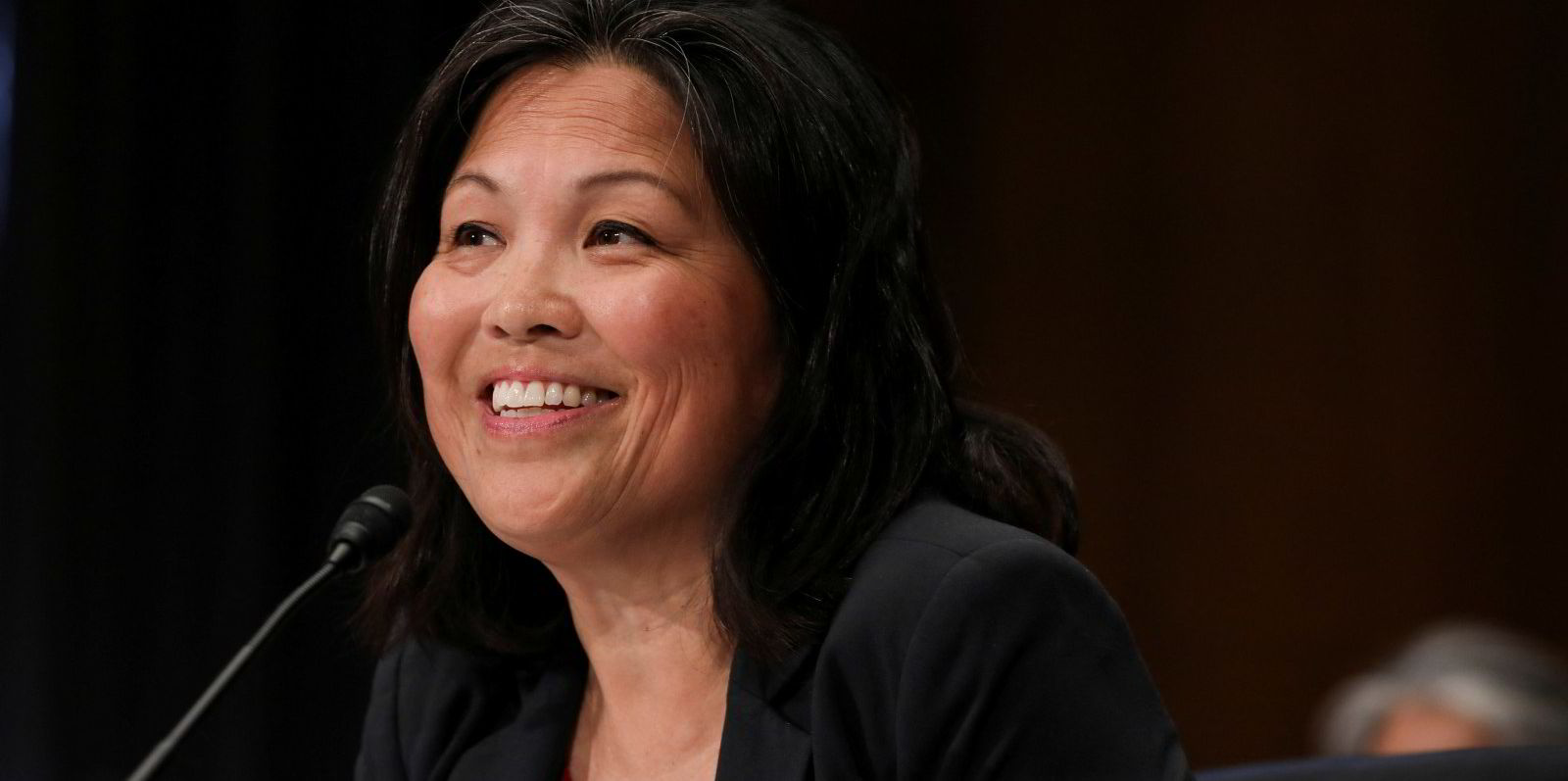A strike by unionised dockworkers on Canada’s west coast should not impact container freight rates at two major ports, but it may disrupt container throughput, according to online container marketplace Container xChange.
About 7,500 dockworkers represented by the International Longshore and Warehouse Union (ILWU) Canada entered into the third day of a strike on Monday as it negotiates a new labour contract with the British Columbia Maritime Employers Association (BCMEA).
ILWU Canada kicked off the strike on Friday after three months of talks failed to produce a new labour deal to replace one that expired on 31 March.
“So far, we do not see a rub off of the strikes on container prices,” Container xChange said in a statement.
Average freight rates at the port of Vancouver have been falling for months, according to Container xChange, which estimates that they have dropped steadily to $1,711 per feu in June from $5,460 per feu in February 2022.
But the strike could significantly reduce the cargo volume that typically goes through these two major ports, chief executive Christian Roeloffs said.
“These ports handle a substantial portion of Canada’s imports and exports,” he said in a statement.
“The disruption caused by the strike can lead to delays, congestion and inefficiencies in the movement of cargo, affecting various industries and businesses that rely on the smooth functioning of the supply chain.”
Cargo volumes at the port of Prince Rupert grew by 2% to 2.16m tonnes in May 2023 from 2.12m tonnes a year earlier, according to Container xChange.
“With these disruptions, we can expect this growth to get affected negatively in the coming months, depending on the duration of the conflict,” Roeloffs said.
“The maritime industry plays a crucial role in global trade, and labour disputes can have significant implications for the regional supply chain.”
ILWU Canada said it is seeking a fair deal for longshore workers that protects their jobs and jurisdiction from automation. The union also said it wants recognition for the hard work and sacrifices that longshore workers made during the pandemic.
“But the employers and their bargaining agent, the BCMEA have repaid our hard work and dedication with demands for major concessions,” union president Rob Ashton said.
“Their only objective is to take away rights and conditions from longshore workers after having gorged themselves on record profits during the pandemic.”
Both sides are taking a break in negotiations after holding 33 hours of talks since the strike began.

“Over the course of the past couple of days, the BCMEA has continued to advance proposals and positions in good faith, with the objective of achieving a fair deal at the table,” the BCMEA said in a statement.
“Our bargaining committee has made repeated efforts to be flexible and find compromise on key priorities, but regrettably, the Parties have yet to be successful in reaching a settlement.”
The ILWU Canada strike began about two weeks after the ILWU representing 22,000 dockworkers on the US West Coast and the Pacific Maritime Association representing 70 terminals and ocean carriers on the West Coast reached a tentative labour contract after 13 months of negotiations.





